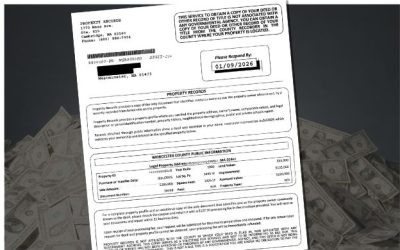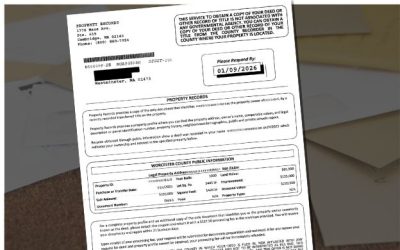Caught in the Crosshairs?
What Triggers Federal Interest in Your Home SaleThe Top Red Flags That Could Invite a Closer Look from Washington
Cash, LLCs, or Land Near a Base? You Might Just Be a Target
In today’s security-conscious environment, real estate deals aren’t just between buyers and sellers — they’re being watched, analyzed, and sometimes flagged by federal agencies. And while the average home transaction flies under the radar, certain combinations of factors can put your deal squarely in the government’s crosshairs.
This post outlines the most common red flags that trigger federal interest — not because you’ve done something wrong, but because your transaction fits a high-risk profile.
All-Cash Purchases Over Federal Thresholds
All-cash deals aren’t inherently suspicious — but they circumvent the checks that come with traditional financing. That’s why they’re monitored more closely, especially in certain cities.
Triggers Scrutiny When:
- Purchase occurs in a FinCEN Geographic Targeting Order (GTO) region (like Boston, Miami, NYC, etc.)
- Buyer uses an entity (LLC, trust, partnership) rather than a personal name
- No mortgage or lender involvement, making the source of funds opaque
Foreign Buyers Purchasing Near Sensitive Locations
If you’re selling land or property near a military base, seaport, or energy facility, and your buyer is a foreign national or foreign-controlled company, your deal may come under review.
Triggers Scrutiny When:
- Buyer is from a geopolitically sensitive country (e.g., China, Russia, Iran)
- Property is within 100 miles of a designated sensitive site
- Transaction lacks full ownership transparency
Use of Shell Companies or Anonymous Trusts
The U.S. government is increasingly focused on beneficial ownership transparency — knowing who is actually behind the deal.
Triggers Scrutiny When:
- The entity used is registered in a secrecy jurisdiction (Delaware, Cayman Islands, etc.)
- There is no clear beneficial owner disclosed at closing
- Documents reference multiple layers of ownership
See how the Corporate Transparency Act impacts real estate deals
Unusual Transaction Patterns or Repeated Flipping
Agencies like the IRS and FBI monitor the real estate market for signs of fraudulent investment behavior or tax evasion schemes.
Triggers Scrutiny When:
- Property is bought and resold quickly at an inflated price
- There’s a series of transactions between related parties
- Funds move between multiple accounts or buyers during closing
Wire Transfers from High-Risk Countries or Banks
Closings often involve multiple wire transfers — but not all financial institutions are treated equally. Some are flagged for lax compliance standards or sanctions risks.
Triggers Scrutiny When:
- Funds are transferred from offshore accounts with unclear sourcing
- Transfers pass through non-U.S. banks flagged by the Treasury Department
- The transfer amount and origin don’t match the buyer’s stated income or citizenship
Check OFAC’s sanctions lists (used by Homeland Security and Treasury)
How to Avoid Red Flags — Without Wrecking Your Deal
You don’t need to avoid cash, trusts, or foreign buyers altogether — but you do need to approach them with transparency and legal oversight.
Here’s how to protect your closing:
- Use a qualified closing attorney who knows what will raise compliance concerns
- Disclose beneficial ownership if you’re buying through a business or trust
- Avoid unusual structuring (like passing ownership through a friend or nominee)
- Keep clean documentation for funds, identity, and intent
Smart Deals Don’t Get Flagged — They Get Cleared
At The Law Office of David R. Rocheford, Jr., P.C., we know how to structure your closing so that it passes every test — legal, financial, and federal. Whether you’re selling to a foreign buyer or buying with cash, we keep your transaction clean and compliant.
Providing title, escrow, closing and settlement services to clients throughout Massachusetts and New Hampshire
From Our Clients
Recent News
What Real Estate Agents Need to Know About FinCEN’s New Residential Real Estate Reporting Rule (Effective March 1, 2026)
SUMMARY: Starting March 1, 2026, FinCEN’s Residential Real Estate Rule requires a Real Estate Report for certain non-financed residential transfers where the buyer is an entity or trust (common “cash/opaque ownership” scenarios). Real estate agents do not file the...
Why New Homeowners Get Targeted After Closing
For many buyers, one of the most surprising parts of homeownership happens after the closing is complete: the sudden increase in mail related to their property. This isn’t accidental—and it isn’t unique to any one company or offer. It’s the predictable result of how...
New Homeowners Beware: “Recorded Deed” Letters That Aren’t What They Seem
Buying your first home is exciting—and it often comes with a mountain of paperwork. Unfortunately, it can also make you a target for misleading solicitations that appear official and urgent, but offer nothing you actually need.One of the most common examples we see...








